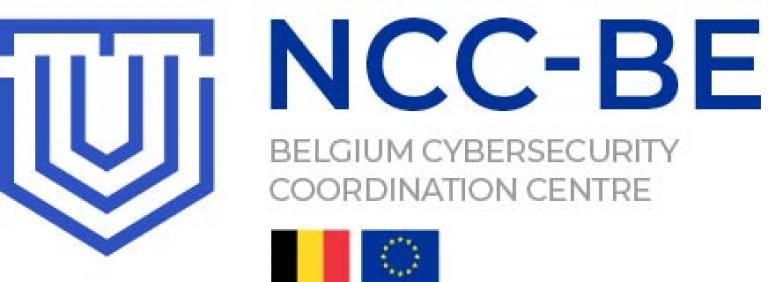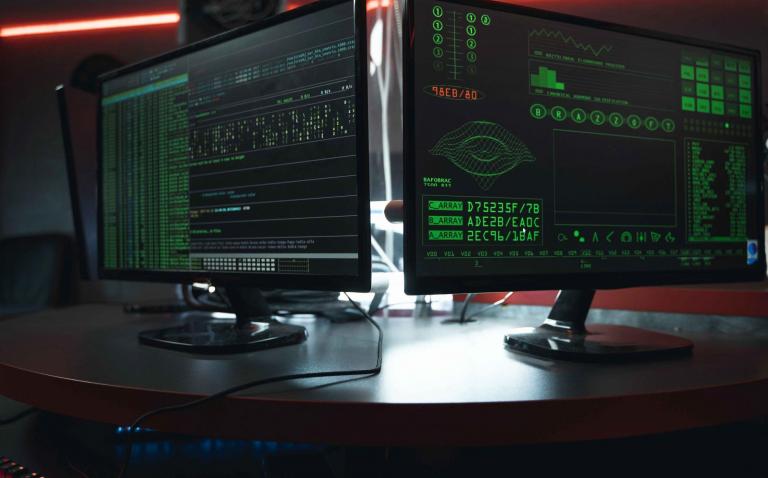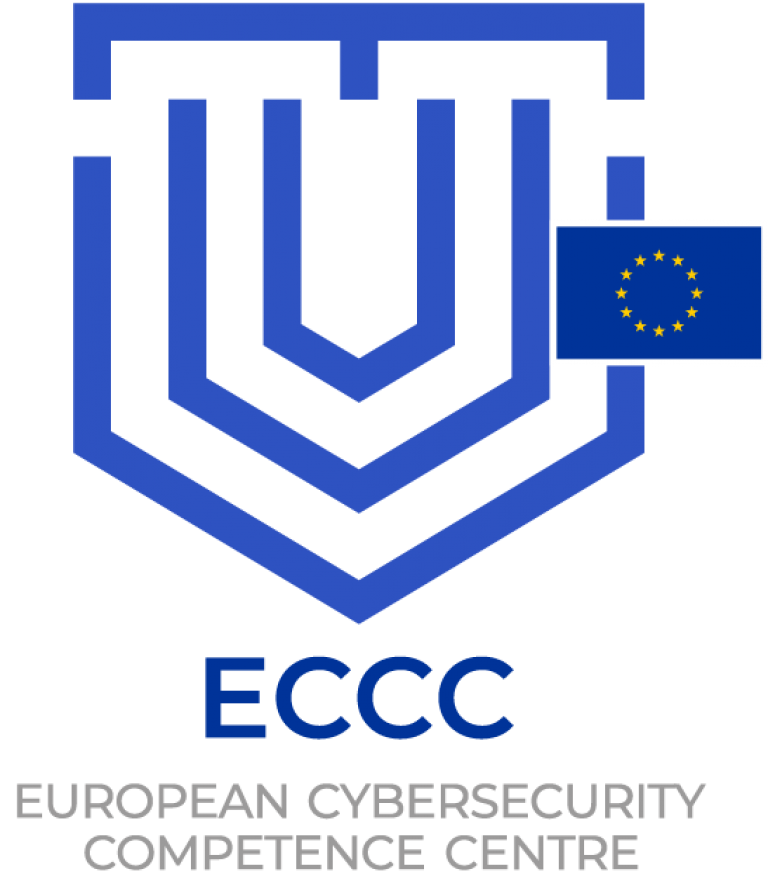National cybersecurity Coordination Centre Belgium
The Centre for Cybersecurity Belgium (CCB) has been designated as the future national coordination centre (NCC) for Belgium. This centre is part of a new European management framework consisting of the European Cybersecurity Competence Centre (in Bucharest) and a Network of 27 National Coordination Centres – one in each Member State – established by European Regulation (EU) 2021/887 of 20 May 2021.
This management framework aims to pool and better coordinate research, technology and industrial development investments in the field of cyber security in the Union. The centre of excellence should manage financial support for cybersecurity from, in particular, the Horizon Europe (HEP) and Digital Europe Programme (DIGITAL) investment programmes. This approach will help create synergies, encourage cross-border initiatives and avoid unnecessary duplication of efforts.
(private space) User registration | User password reset procedure

The importance of a national coordination centre for Belgium
The technological developments, new (cross-border) cyber threats and the radical shift to digital environments due to COVID-19 are changing our society at a rapid pace. It is important that Belgium keeps up with this evolution in order to meet the associated challenges.
- The national coordination centre will allow Belgium to fully seize new (investment) opportunities from the EU;
- In addition, the national coordination centre will improve cooperation at the national and regional levels in Belgium, which (given the current cyber challenges) is essential to achieve the necessary level of cyber security.
Establishment and tasks of the European Competence Centre
The European Cybersecurity Competence Centre, in cooperation with the Network of National Coordination Centres, will build a strong cybersecurity knowledge community to facilitate cooperation and the sharing of expertise and capabilities between all relevant stakeholders, in particular research and industrial communities, as well as public authorities. This ecosystem should strengthen the capacities of the knowledge community, protect our economy and society from cyberattacks, maintain excellence in research and strengthen the competitiveness of European industry in the field of cybersecurity.
The European Competence Centre, together with Member States, industry and the knowledge community, will develop and implement a common agenda for technology development in the cybersecurity domain and for its wide application in society and in businesses – in particular SMEs.
The European organisation
The European Cybersecurity Competence Centre is currently being established. The Commission will ensure that the Competence Centre continues to function until it can operate autonomously. The administrative and administrative structure of the competence centre consists of:
- A Governing Board that provides strategic orientation and supervises the activities of the Centre. Each Member State is represented on this Governing Board by two delegates. The CCB will provide two experts who represent Belgium's views on the Board;
- An Executive Director who is the legal representative of the Centre and responsible for day-to-day management;
- A Strategic Advisory Group that ensures a permanent dialogue between the knowledge community and the Centre;
The Competence Centre will work closely with the Network of National Coordination Centres, which supports the cybersecurity community at national level and can channel EU funding under certain conditions.

Tasks and operations of the National Coordination Centre
The new management framework and the national coordination centre offer many opportunities to strengthen the cyber ecosystem in our country, to realise new growth in digitisation and its security, and to increase Belgium's digital competitiveness. It is therefore of great importance to set up an organisation that is as efficient as possible, delivering optimal coordination between all existing and future cyber (security) initiatives and their stakeholders.
National coordination centre
As a national coordination centre, the Centre for Cybersecurity Belgium (CCB) will have three main tasks:
- Coordinating investments from the EU
- Supporting the strategic tasks of the European Competence Centre
- Acting as a national focal point for the European management framework
In addition, the national coordination centre makes it possible to coordinate the competences in the field of cyber security – which in Belgium are shared between the regions, communities and the federal government – and to determine a strategic approach.
Central consultation platform
To coordinate Belgium’s position, as well as to ensure the functioning of the Belgian national coordination centre and the general Belgian cybersecurity investment policy, a central, national consultation platform at working group level has been set up for all relevant administrations of federal and federated entities and of the security services. This consultation platform is called the Strategic Board (SB). The Belgian positions determined by the Strategic Board will be communicated by two experts from the CCB on the Governing Board of the European Competence Centre.
Advice from the (cybersecurity) field
Of course, the national coordination centre and the Strategic Board must be furnished with information from the Belgian knowledge community about the needs, trends and developments around cybersecurity. That is why a Belgian advisory group – the Belgian Strategic Advisory Group (BSAG) - will also be set up with a broad representation from the knowledge community. BSAG will inform its support base and stakeholders as well as possible about the initiatives of the management framework and the European investment opportunities.
EU Investment Programmes
The new work programmes have been adopted by the European Commission for both Digital Europe Programme and Horizon Europe, but also the European Defence Fund. All of them include allocations for cyber security projects.

Digital Europe Programme
The Digital Europe Programme aims to support the development of advanced digital technologies and will reinforce EU critical digital capacities by focusing on the key areas of cybersecurity, advanced computing, artificial intelligence (AI), data infrastructure, governance and processing, the deployment of these technologies, and their best use for critical sectors.
The work programmes: DIGITAL Europe Work Programme 2023-2024, and specifically for cyber security: DIGITAL Europe - Cybersecurity Work Programme 2023-2024.

Horizon Europe
Horizon Europe is primarily focused on research and innovation, more exactly on research infrastructures. For more information:
European Commission – Horizon Europe cybersecurity-related aspects.
The cybersecurity aspects are available in the Work Programme 2023-2024 for Cluster 3 'Civil Security for Society'.
The Funding and Tenders portal
The European Innovation Council (EIC) Accelerator Funding Programme
- have a innovative, game changing product, service or business model that could create new markets or disrupt existing ones in Europe and even worldwide,
- have the ambition and commitment to scale up,
- are looking for substantial funding, but the risks involved are too high for private investors alone to invest.

European Defence Fund
The European Defence Fund (EDF) is the European Union's programme for research and development in the defence industry. The European Commission has adopted the latest annual work programme under the EDF, with a grand total of €1.2 billion to support collaborative research and development projects and innovation in Europe's defence sector. The cyber topic was allocated an amount of 60 million EUR.
European Defence Fund details (including work programme)
Funding and Tenders portal - EDF
FPS Economy (coordinator of EDF in Belgium) (available in NL or FR)
Cybersecurity Funding
Digital Europe
New cybersecurity funding announced under Digital Europe Programme
- Enlarging existing or Launching New Cross-Border SOC Platforms (DIGITAL-ECCC-2024-DEPLOY-CYBER-07-SOCPLAT)
- National SOCs (DIGITAL-ECCC-2024-DEPLOY-CYBER-07-SOC)
- Development and Deployment of Advanced Key Technologies (DIGITAL-ECCC-2024-DEPLOY-CYBER-07-KEYTECH)
- Preparedness Support and Mutual Assistance, Targeting Larger Industrial Operations and Installations (DIGITAL-ECCC-2024-DEPLOY-CYBER-07-LARGEOPER)
- Support for Implementation of EU Legislation on Cybersecurity and National Cybersecurity Strategies (2024) (DIGITAL-ECCC-2024-DEPLOY-CYBER-07-CYBERSEC-02)
- Strengthening the SOC Ecosystem (DIGITAL-ECCC-2024-DEPLOY-CYBER-07-SOCSYS)
ECCC presentation on the DIGITAL-ECCC-2024-DEPLOY-CYBER-07 call (.PDF)
Important Update: DIGITAL-ECCC-2024-DEPLOY-CYBER-07 Call Deadline Extended!
Please note that the deadline for the DIGITAL-ECCC-2024-DEPLOY-CYBER-07 call has been postponed from 21 January 2025 to 27 March 2025, 17:00:00 Brussels time.
For further information and to access the updated call documents, please visit the official call page on the EU Funding & Tenders Portal.
Horizon Europe
EU funding under Horizon Europe
Under the call Increased Cybersecurity 2024 (HORIZON-CL3-2024-CS-01), there are two forthcoming call topics available starting with 27/06/2024 (planned opening date) and with the submission deadline 20/11/2024 17:00:00 Brussels time:
- HORIZON-CL3-2024-CS-01-01: Approaches and tools for security in software and hardware development and assessment
- HORIZON-CL3-2024-CS-01-02: Post-quantum cryptography transition.
Under Fighting Crime and Terrorism 2024 (HORIZON-CL3-2024-FCT-01):
- HORIZON-CL3-2024-FCT-01-01: Mitigating new threats and adapting investigation strategies in the era of Internet of Things
- HORIZON-CL3-2024-INFRA-01-03: Advanced real-time data analysis used for infrastructure resilience
European Defence Fund (EDF)
The European Commission has adopted the fifth annual Work Programme under the European Defence Fund (EDF), allocating €1.065 billion to collaborative defence research and development (R&D) projects. It supports the development of critical defence technologies and capabilities in all military domains, including cyber, in line with the EU capability priorities agreed by Member States.
The Work Programme also includes dedicated measures to support SMEs and mid-caps under the EU Defence Innovation Scheme (EUDIS).
Download the EDF WP 2025 here.
Join the EDF 2025 Info & Networking Event - shape the Future of European Defence (2–3 April 2025, in Brussels & Online) for more in-depth info on EDF calls and application guidance, matchmaking sessions and networking.
Third European Defence Fund Matchmaking Day
The third edition of the European Defence Fund (EDF) Matchmaking Day is focusing on providing support to possible applicants for EDF projects to engage in consortia. This year´s edition will take place virtually on 12 March 2025, from 13:00 to 18:00 CET. The event will be preceded by a dedicated webinar on EDF proposal preparation, scheduled for the same day from 11:00 to 12:00 CET.
The Matchmaking Day is organized by “Enhancing Opportunities for All” (EOA), a project funded by the European Defence Fund.
For registration in the webinar (conducted on Livestorm), use the following link.
For registration and participation in the matchmaking sessions, use the following link.
EVENTS
Please find below the link to the presentation given by Felicia CUTAS, Programme Officer at the European Cybersecurity Competence Centre (ECCC)
Your Guide to DEP Funding

Imagine this: you have a brilliant cybersecurity project, a well-thought-out execution plan, and the team to bring it to life. The next step is securing funding, but navigating the complexities of EU funding applications can be daunting. Fortunately, this step-by-step guide to the Digital Europe Programme simplifies the process and helps you get started.
Best of luck!
50,000 Belgians surf more safely thanks to Safeonweb browser extension
44% of Belgians forward phishing messages to suspicious@safeonweb.be
Reflecting on 2024: Centre for Cybersecurity Belgium - Milestones
Belgian Federal Government invites Ethical Hackers for First-Ever 'Hack the Government' Event
Cyber Resilience Act (CRA): new rules will make connected products more secure








